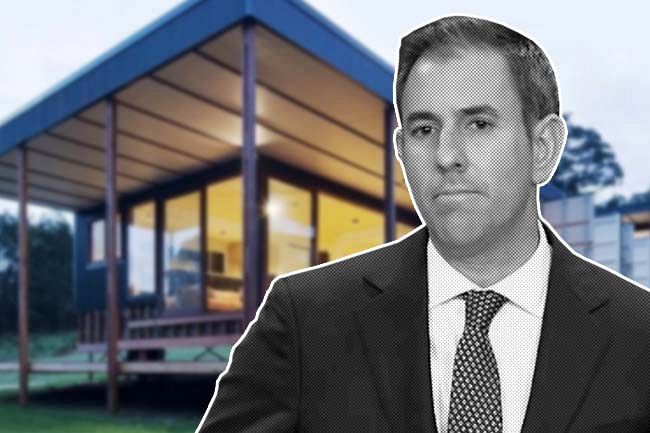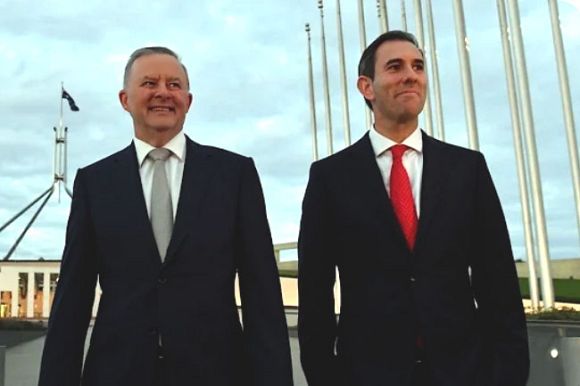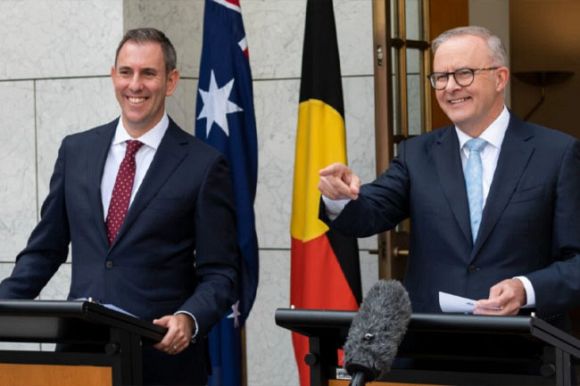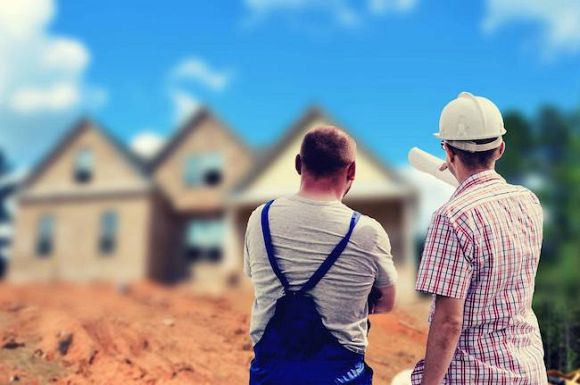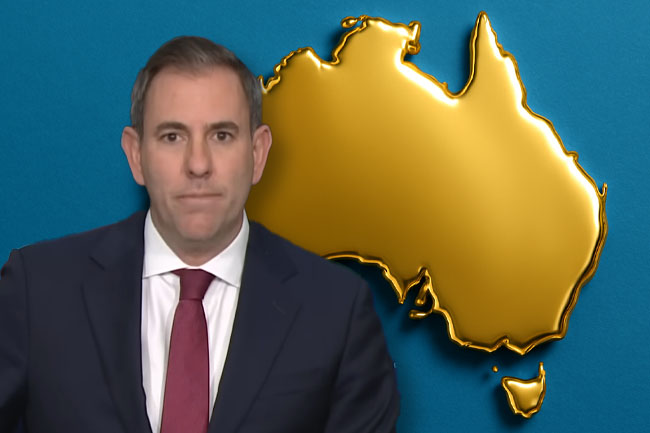Australia’s national accounts for March show the economy is soundly managed and set for the next phase, as Alan Austin reports.
THESE ARE DIFFICULT TIMES for treasurers and finance ministers worldwide. Fortunately for Australians, the Albanese Government is proving to be up to the challenge.
Australia's economy grew by 0.23% in the March quarter, registering an annual GDP growth of 2.27%. That’s according to the national accounts released by the Australian Bureau of Statistics last week.
Private investment rose 1.4%, but housing investment fell by 2.0%. The household saving ratio fell to 3.7%, the lowest since the Global Financial Crisis in 2008. Productivity slumped again to just 97.8 index points, back where we were in December 2019, pre-pandemic.
These are the weakest outcomes since the COVID lockdowns. Local contributing factors include low disposable income following years of wage suppression, rising interest payments on mortgages, bracket creep lifting effective tax rates on families and a lethargic corporate sector. External factors are also detrimental.
Grim global conditions
The war in Ukraine has worsened inflation worldwide, through increased prices of fuel and other products. The U.S. economy is yet to recover from the disastrous decisions on trade, tariffs and taxation during the Trump years. The British are still adjusting to life post-Brexit.
Climate change has led to droughts in France, Indonesia, Argentina and parts of Asia and Africa, and devastating bushfires in Canada, the USA and elsewhere.
Given these, Australia’s economy is travelling well. Of the 36 OECD members to have reported first-quarter GDP growth numbers, Australia ranks 11th. See grey and blue chart, below.

Germany, Hungary, Lithuania and Estonia are in recession, having copped two or more negative growth quarters. The Czech Republic and Finland have just emerged from recession with modest positive growth in March. Another three countries – Greece, Ireland and the Netherlands – went backwards in March after a positive December quarter and now risk slipping into recession.
Australia’s current position is a substantial improvement on ranking 25th in the fourth quarter of 2019 and 30th in the 2021 third quarter. Of course, this is not quite as good as coming first, as Australia did during the Rudd and Gillard years, but we must be patient.
Chalmers settles into his stride
Overall, Australia’s books are progressively improving. The trade surplus has been above ten billion dollars for the last eight months for the first time ever.
The budget is on track for a significant surplus this financial year, with the new Government having finally ended the Coalition’s criminal rorts and waste. Gross debt last Friday was just $887.4 billion — $3,600 million lower than a year ago.
Jobless numbers have been creeping up in recent months, reaching 528,000 in April, the highest since the Election in May last year. But as a relieved Treasurer Dr Jim Chalmers told his Auckland audience on Thursday: “Unemployment, while ticking up, still has a three in front of it.”
Share of national income going to wage earners
This increased very slightly in the March quarter, up to 50.3%, but not as much as the lift in corporate profits which rose to 32.0%, the second highest ever. See blue chart, below.

Much more should be going to workers. Corporate investors grasping an ever-growing share is highly undesirable.
Since the global COVID recession ended in the 2021 first quarter, the wages component has risen by 17.0% while profits have surged 32.9%. This is strong prima facie evidence that inflation is driven more by profit-motivated price gouging than wage rises.
Visionary solution required
The above numbers suggest Australia faces eight pressing issues: poverty among welfare recipients and low-wage earners due to high rents; intending first-home buyers thwarted by house prices; declining housing investment; falling productivity; unemployment creeping up; inflation worsening by rising rents; lethargic corporate innovation; and low economic growth.
One initiative addresses all eight simultaneously — a bold national program to build a million low-cost houses.
Labor is good at large-scale projects. The 2009 school buildings (BER) and home insulation programs were admired by awestruck observers worldwide, despite being attacked mercilessly at home by the malicious mainstream media and the craven Coalition.
Past Labor administrations built the Snowy Mountain scheme, the Collins class submarines, the ANZAC class frigates, Medicare, the current social security system, universal superannuation, the paid parental leave scheme and the clean energy fund.
Alternative housing options
The photo below is of a low-cost home built in Pennsylvania, USA, from used shipping containers.

Low-cost sustainable housing can be built from used shipping containers and other recyclables. (Photo credit: dwell.com)
Affordable homes are also being constructed of synthetic concrete in Vietnam, recycled wooden pallets in Chile, plant fibre board in England, dune sand cement in China, bamboo in Hawaii and sandbags in South Africa.
Australia has all these raw materials, so just needs enterprise from private industry and governments.
Independent Australia leading the charge
This journal will continue to push for innovation in social housing. Last Thursday, Dr Lee Duffield urged more investment via ‘a dose of democratic big government’, based on lessons from history. That followed Mark Allen the previous day showing ‘Why the housing crisis is here to stay’. Dr Klaas Woldring demonstrated that in a high immigration country, publicly owned rental housing ‘is an absolute necessity’.
This column has long argued that social housing is essential for both a sound economy and social justice and has offered creative examples. Other contributions have been provided by Michael Bayliss, Sue Arnold, Melissa Marsden, Karl Fitzgerald and David Shearman.
Prime Minister Albanese often expresses gratitude for the public housing in which he was raised. He should now offer this to other Australians. One million of them.
Alan Austin is an Independent Australia columnist and freelance journalist. You can follow him on Twitter @alanaustin001.
Related Articles
- More public housing would help those in Australia doing it tough
- Why the housing crisis is here to stay
- Government action urgently needed as housing crisis escalates
- Population growth fuelling the housing crisis fire
 This work is licensed under a Creative Commons Attribution-NonCommercial-NoDerivs 3.0 Australia License
This work is licensed under a Creative Commons Attribution-NonCommercial-NoDerivs 3.0 Australia License
Support independent journalism Subscribe to IA.



